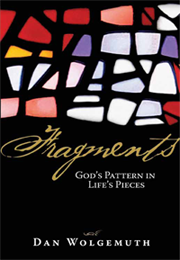It was 1896 when the Supreme Court of the United States convened for what would become a landmark case. Seven justices were opposed by one dissenting voice. That voice belonged to John Marshall Harlan, a Kentucky lawyer who was appointed to the highest court in the land by President Rutherford B. Hayes.
The case in front of the court was Plessy v. Ferguson.
The origin of the case came when Homer Plessy, a black Louisiana shoemaker bought a first-class ticket in a “whites only” rail car. He was arrested and accused of violating the Louisiana Separate Car act.
Homer Plessy was convicted and subsequently appealed the case all the way to the Supreme Court. In 1896 the Court voted in support of the conviction by an overwhelming 7 to 1 margin.
Upholding the conviction provided a red carpet for the Jim Crow laws that would remain in effect until the 1950’s and 1960’s. Laws that strangled human freedom and flourishing for black Americans by providing a suffocating grip on equal access and opportunity. Laws and injustice that ultimately galvanized the resolve of individuals like Rosa Parks in 1955, and amplified the voice of leaders like Martin Luther King, Jr. in 1963.
One dissenter. One “no” vote as the High Court stooping to one of its lowest points ever.
One.
A lone voice on behalf of Homer Plessy. One.
In his dissenting opinion, Justice Harlan wrote… “Everyone knows that the statute in question was intended to exclude colored people from coaches occupied by or assigned to white persons,” adding that the law was “cunningly devised” to overturn the results of the Civil War.
Seven justices disagreed. Seven. Against one.
One.
John Harlan.
On behalf of a shoemaker from Louisiana. Homer Plessy.
Decades before the Lincoln Memorial was completed… which decades later Martin Luther King, Jr. would stand on and deliver one of the most famous speeches in American history… Homer Plessy and John Harlan took a stand. For human dignity. For equality.
For America to live into the promise it had made in the Declaration of Independence… “We hold these truths to be self-evident, that all men are created equal, that they are endowed by their Creator with certain unalienable Rights, that among these are Life, Liberty and the pursuit of Happiness.”
What Homer Plessy believed, John Harlan defended.
Soloists. Waiting for the grand choir to assemble around the Lincoln Memorial in August of 1963. A choir under the inspirational direction of a man with a dream. A dream that was anchored more firmly in Genesis 1 & 2 than in the pens of men in the 1700’s. A dream anchored in divine design. A dream empowered by the Creator.
A Creator who had left His seat at the right hand of God…
An act of love and sacrifice that ushered Homer Plessy to his seat on a rail car in Louisiana. Image bearers expected to treat each other in like manner. Oppression confronted. Justice defended. Diversity celebrated.
Sometimes human history pivots with the masses. Sometimes it shifts with a first-class ticket and a lone dissenting vote.
One.
Me. You.
One. For all. On behalf of our righteous, holy, and just God.

{ 0 comments… add one now }